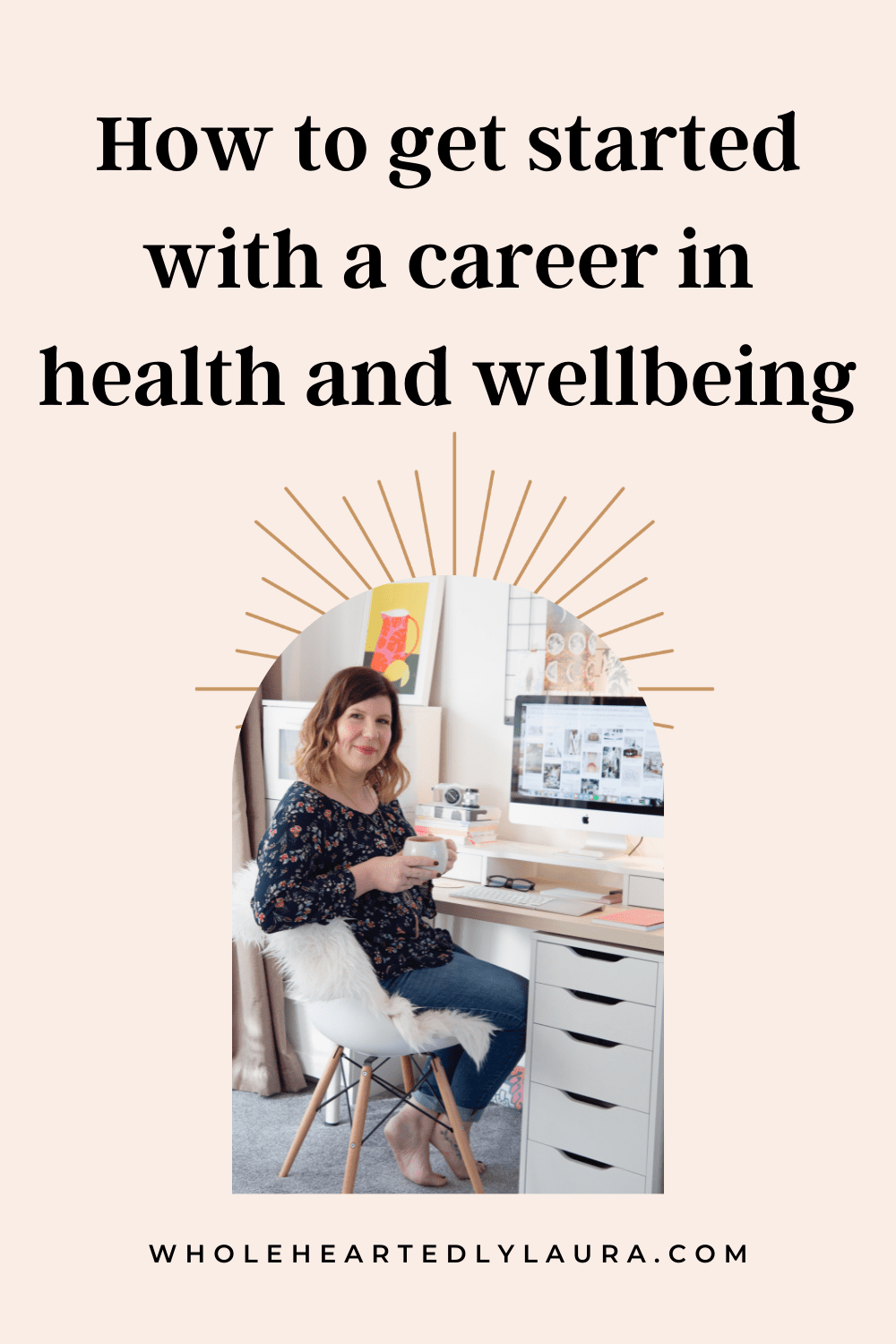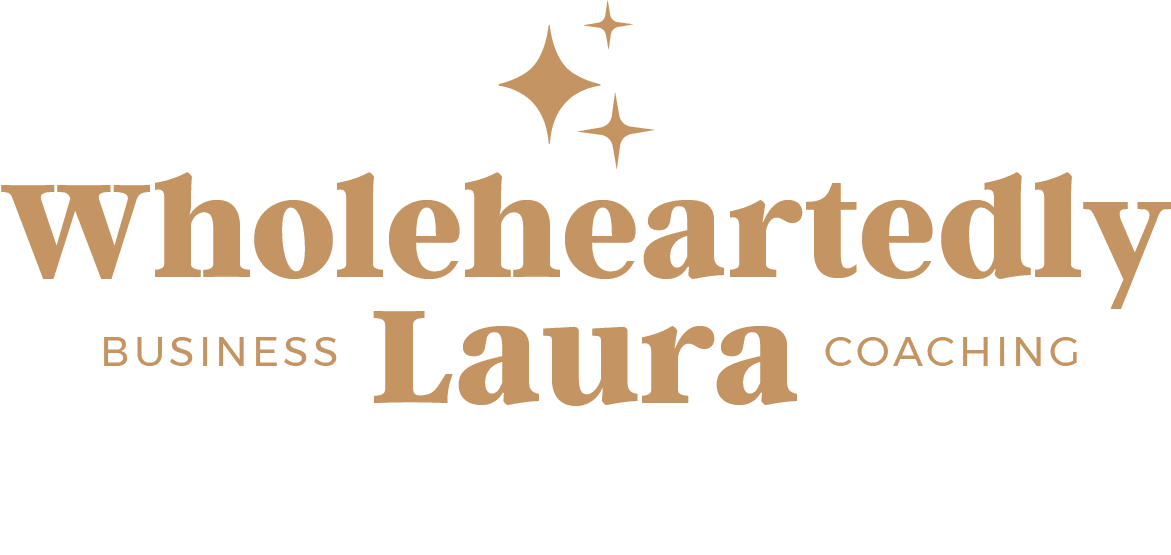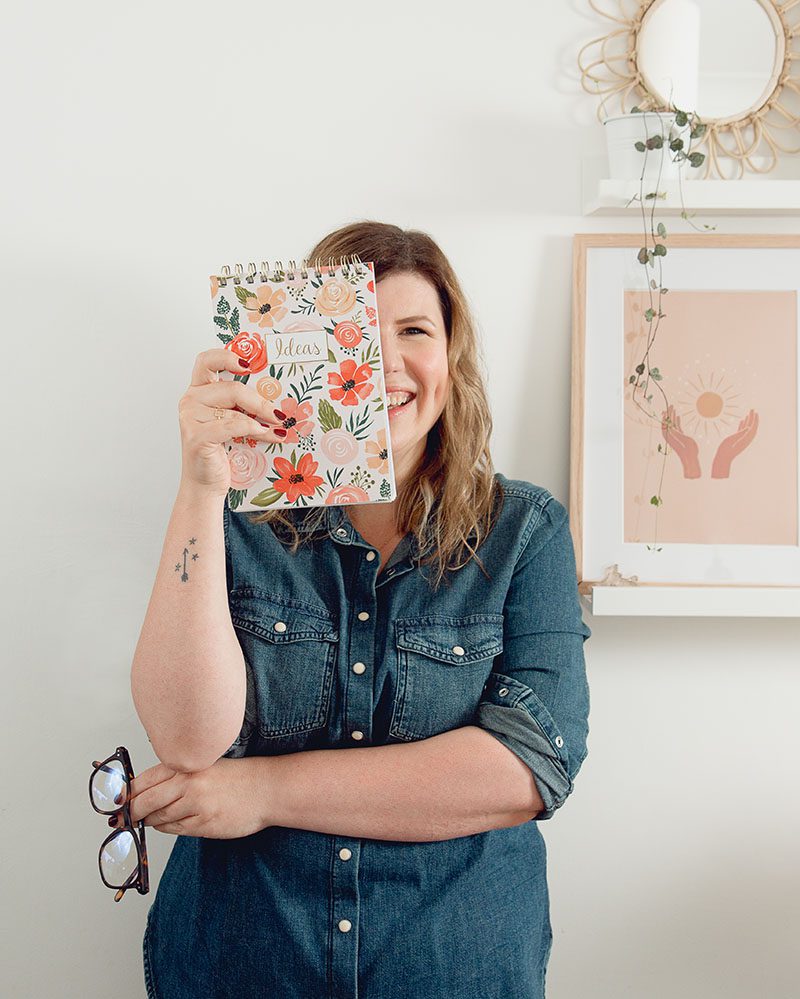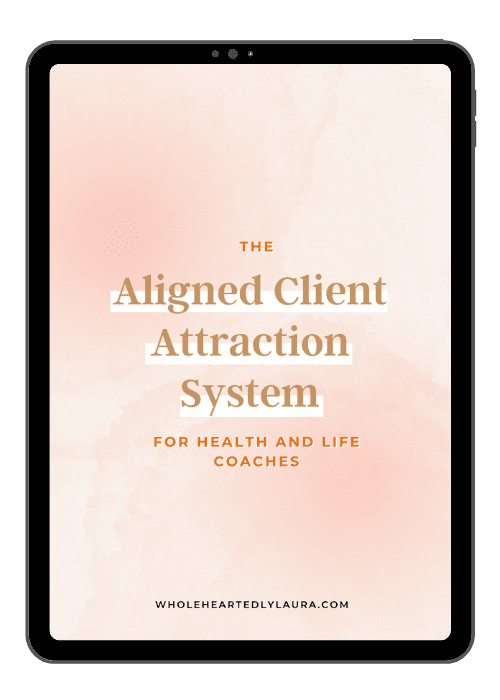Time for another biz post, and today I’m answering a question I was emailed by a reader asking how to get started in a career within health and wellbeing. There’s clearly lots of different ways to work within this industry, from personal training to massage to teaching yoga and everything in between. However, it can be especially daunting when you’re just getting started. It can feel like there are thousands of people already doing it and the paths into the industry can often feel inaccessible, especially when you’re a little older and are looking to switch careers. I know I didn’t have the advantage of a lot of money, nor the time out of work to be able to go back to university.
So how can you start doing something you love for a living, especially when you’re looking to switch careers?
I’m a firm believer that if you’re wanting to get involved in a career in health and wellbeing it’s going to have to start with education or training, no matter how passionate you are. You need that foundation before you get started. Then it’s about really researching your options. Thankfully it’s possible to get started without having to study at university for 4 years, but with that flexibility comes restrictions which I’ll move on to later.
There are many courses available in most areas within health and wellbeing that are institution-based and online-based and it’s certainly worth researching what your options are and how they might fit into your life. For example with holistic nutrition, there are a range of courses available at universities in the UK and others which are online-based. It’s really important to remember that a year-long online course is not going to be the same as a 4 year part time degree!
Going back to my experience, and where I believe many people find themselves, is that you have this passion and love of health and wellbeing but are restricted by budget and limited in terms of locations for studying at an institution, as well as the time to do so. Hence why online courses are so popular.
I choose to study with the Institute of Integrative Nutrition not only because I felt it matched what I wanted to become perfectly, i.e. a health coach (not a nutritionist as I’ll go on to), I adored their ethos, it was within my reach financially and also doable in terms of the time commitment. Other online courses also exist and it’s really worth doing in-depth research into each course to see which matches where you’d like to see yourself going, alongside talking to people who have already taken the course. I’m such a fan of the course because it’s not only enabled me to help hundreds of women feel more fabulous, it’s given me my dream job, as it has for many others.
Sometimes it can be helpful to take a shorter, smaller online course to get a feel for it before investing in a more expensive course. I did the Diet and Nutrition Advisor course with Stonebridge Colleges and found that helped make the decision to study with IIN much easier.
Another consideration in all of this is being honest with yourself to look at your experience and qualifications and taking them into account when you start practising. As far as I’m aware there are no laws against who can and can’t call themselves a nutritionist in the UK, so the responsibility falls on us to be ethical when we work. I could have set up and started practicing with just the Stonebridge qualification, but I didn’t feel anywhere near qualified enough to at that point. Again, it’s important to be clear when choosing an online course what you’re being trained to be. As I said, I’m a health coach and in no way a qualified nutritionist (although in the future I might like to study for a qualification in nutritional therapy) and I don’t work with people in the way I believe a nutritionist would. With any online course, it will help to shape you, but much of how you practise is going to be uniquely formed from your experiences and other qualifications as well.
So to try and sum things up, getting started might look like this:
♥ Decide where you’d like to go, what it is you’d like to become and what your vision is for your new career, doing research and speaking to people who are already doing it.
♥ Research all of your possible options in terms of education and training. Google is a good place to start!
♥ Assess each option for viability depending on your finances, location and time.
♥ Be aware that you might need to tweak that initial vision to bring it into line with the viable education and training option, or accept waiting until the time is right.
♥ Find people who have studied that course and ask them what they thought / look at how they practise now
♥ Make your decision and start living your dreams!
As a former IIN student I’m a big advocate of the IIN Health Coaching programme. It’s not suitable for everyone, and it has its pros and cons but it can be a great option for some people. To find out more sign up here.
Are you looking to get started in a career in health and wellbeing? What questions do you have about the process?
↓ PIN IT FOR LATER ↓





Really interesting post! And you’ve clearly done so well with your business and career :)
Personally I don’t think I could go back to education… unless I was super super interested in something, which I’m not. I like learning through my job for my career but to retrain as something different entirely would be such a leap. Maybe in years to come I’ll think differently but at the moment I’m happy to have my blog on the side to document my passions in an ad hoc and informal way.
Love this post – totally agree that the right training is vital. I’ve done a short course with CNM to see if I liked their ethos and teaching style and I loved it but their full courses are a bit too expensive for me to consider right now. I’m also doing a yoga teacher training course but one that is mostly self study due to working full time – I’m really enjoying it but there was more work on the theory side than I expected and with self study you have to be really motivated to sit down and learn it all but it made me realise how important that side of it is and just “really loving yoga” isn’t enough to be able to safely teach it! x
This is great- I think it’s really important in our area to be totally transparent about qualifications and what you can and cant do, I think it’s vital in terms of the industry as a whole as well. I’m just finishing up my 3 year course with CNM so will shortly be a qualified nutritional therapist, I’ve really enjoyed the course, and how practical it has been, the amount of clinic hours and experience we have done over the course has been invaluable. I’m going to be setting up my nutritional therapy business over the summer, and really looking forward to getting to work on all that, once I finish- exciting times ahead!
This is a very interesting post. I think there is a lot of confusion about nutritionists- I am sure the NHS has dietitians as they are “official” (or something) whereas like you say, anyone could be a nutritionist. I am really interested in that side of things, but at the moment I like to find out about that sort of thing in my own time, and not as a career path or anything.